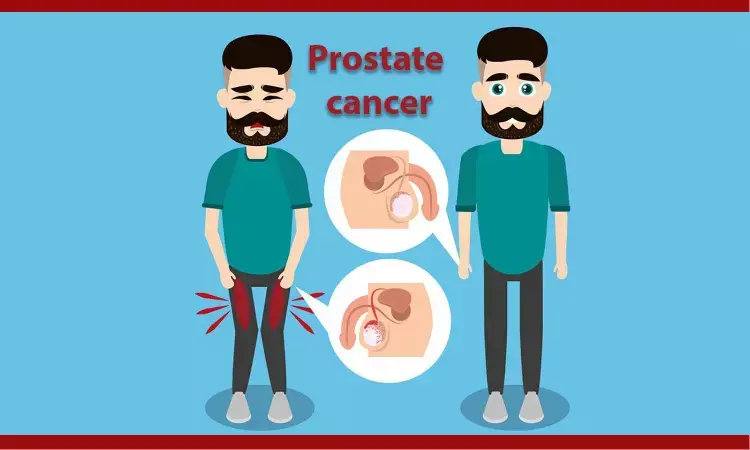- Home
- Medical news & Guidelines
- Anesthesiology
- Cardiology and CTVS
- Critical Care
- Dentistry
- Dermatology
- Diabetes and Endocrinology
- ENT
- Gastroenterology
- Medicine
- Nephrology
- Neurology
- Obstretics-Gynaecology
- Oncology
- Ophthalmology
- Orthopaedics
- Pediatrics-Neonatology
- Psychiatry
- Pulmonology
- Radiology
- Surgery
- Urology
- Laboratory Medicine
- Diet
- Nursing
- Paramedical
- Physiotherapy
- Health news
- Fact Check
- Bone Health Fact Check
- Brain Health Fact Check
- Cancer Related Fact Check
- Child Care Fact Check
- Dental and oral health fact check
- Diabetes and metabolic health fact check
- Diet and Nutrition Fact Check
- Eye and ENT Care Fact Check
- Fitness fact check
- Gut health fact check
- Heart health fact check
- Kidney health fact check
- Medical education fact check
- Men's health fact check
- Respiratory fact check
- Skin and hair care fact check
- Vaccine and Immunization fact check
- Women's health fact check
- AYUSH
- State News
- Andaman and Nicobar Islands
- Andhra Pradesh
- Arunachal Pradesh
- Assam
- Bihar
- Chandigarh
- Chattisgarh
- Dadra and Nagar Haveli
- Daman and Diu
- Delhi
- Goa
- Gujarat
- Haryana
- Himachal Pradesh
- Jammu & Kashmir
- Jharkhand
- Karnataka
- Kerala
- Ladakh
- Lakshadweep
- Madhya Pradesh
- Maharashtra
- Manipur
- Meghalaya
- Mizoram
- Nagaland
- Odisha
- Puducherry
- Punjab
- Rajasthan
- Sikkim
- Tamil Nadu
- Telangana
- Tripura
- Uttar Pradesh
- Uttrakhand
- West Bengal
- Medical Education
- Industry
New Study reveals link between central adiposity and fatal prostate cancer

A study of more than 200,000 UK men has linked central adiposity with fatal prostate cancer. The study is being presented at this year's European and International Conference on Obesity (ECOICO), held online this year from September 1-4.
Prostate cancer is the second most common cause of cancer-specific death among men in the UK. The disease affects one in six men during their lifetime, causing more than a quarter of all new male cancer cases, and almost 12,000 deaths every year in the UK. There is some evidence that suggests a relationship between adiposity (amount of body fat) and likelihood of dying from prostate cancer, but more research was needed to confirm this association and determine whether it is not just the amount, but also the distribution of fat within the body that has an impact on risk.
The study, conducted by Dr Aurora Perez-Cornago and colleagues at the Cancer Epidemiology Unit, Nuffield Department of Population Health, University of Oxford, UK and funded by Cancer Research UK, aimed to understand how both total adiposity and the distribution of fat in the body relate to fatal prostate cancer.
The team selected 218,225 men who were voluntary participants in the UK Biobank study (500,000 volunteers age 40-69 years recruited between 2006 and 2010) who were free from cancer at the baseline date. Their health was followed for 10.8 years using data from health administrative databases, and details of body mass index (BMI), total body fat percentage (measured using bioimpedance), waist circumference, and waist-to-hip ratio were collected when each volunteer was recruited. Complex statistical analyses that accounted for medical history, and socioeconomic and lifestyle factors were used to estimate links between the risk of dying from prostate cancer and these measures of adiposity.
During the follow-up period 571 men died from prostate cancer. The researchers discovered that while there was no clear association of BMI or total fat percentage with risk, there was a positive link between measures of central adiposity and risk of prostate cancer death. Those in the top 25% for waist circumference were 35% more likely to die of prostate cancer than men in the bottom 25%, while those in the top 25% for waist-to-hip ratio were 34% more likely to die than men in the bottom 25%.
Dr Perez-Cornago concludes: "We found a significant association between concentration of body fat around the belly and waist and the risk of prostate cancer death, but no clear association between total body fat and risk of prostate cancer death. However, a larger number of cases in this study together with studies in other populations are needed to confirm these findings."
She adds: "A high BMI increases the risk of other diseases, including other types of cancer, so people should consider the implications of excess body fat wherever it is found in the body."
"Future work will examine associations between adiposity and aggressive types of prostate cancer, including advanced stage and high-grade disease."
Source- ECOICO 2020
Hina Zahid Joined Medical Dialogue in 2017 with a passion to work as a Reporter. She coordinates with various national and international journals and association and covers all the stories related to Medical guidelines, Medical Journals, rare medical surgeries as well as all the updates in the medical field. Email: editorial@medicaldialogues.in. Contact no. 011-43720751
Dr Kamal Kant Kohli-MBBS, DTCD- a chest specialist with more than 30 years of practice and a flair for writing clinical articles, Dr Kamal Kant Kohli joined Medical Dialogues as a Chief Editor of Medical News. Besides writing articles, as an editor, he proofreads and verifies all the medical content published on Medical Dialogues including those coming from journals, studies,medical conferences,guidelines etc. Email: drkohli@medicaldialogues.in. Contact no. 011-43720751


